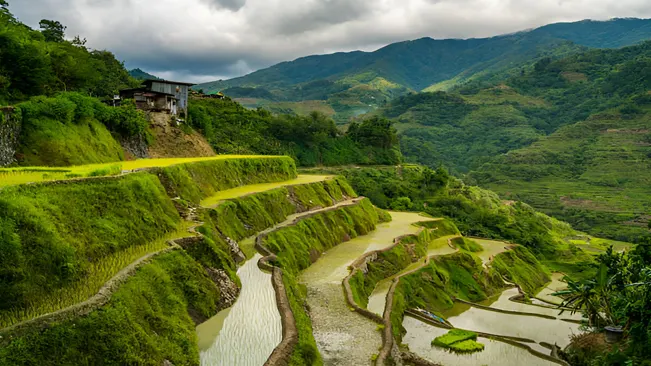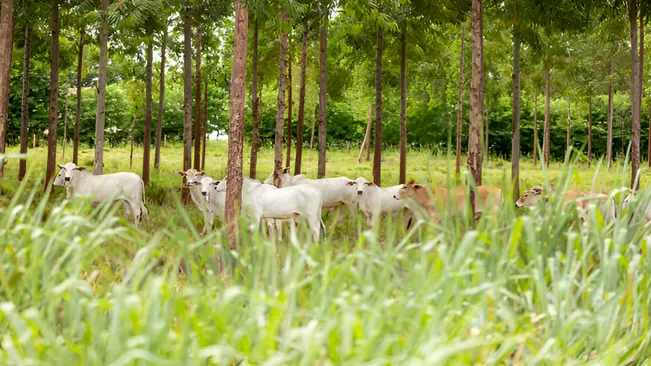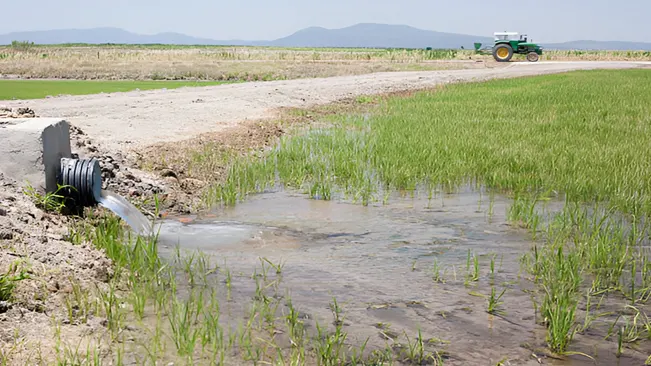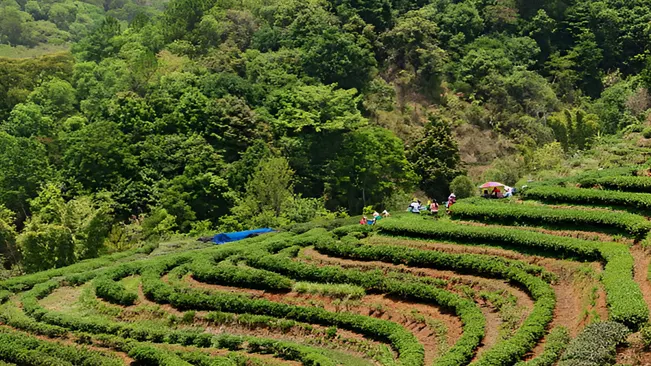What is Land Tenure?
- August 27, 2024
- 0 comment
Land tenure defines the legal rights and responsibilities of land ownership, use, and management within a society. Land tenure refers to the legal and institutional arrangements that define how land is owned, managed, used, and transferred within a society. It is a critical concept in understanding the relationships between individuals, communities, and the land they inhabit. Land tenure systems vary widely worldwide, influenced by cultural, historical, economic, and political factors.
Types of Land Tenure
Private Land Tenure

Private land tenure involves individuals or legal entities, such as corporations, holding exclusive rights to a piece of land. This system allows landholders to use, sell, lease, or develop the land within the legal framework set by the government. In capitalist economies, private tenure is prevalent, treating land as a commodity that can be bought and sold in the marketplace. This arrangement promotes investment and development but can also lead to issues of inequality and concentration of land ownership.
Communal Land Tenure

Communal land tenure is where land is collectively owned by a community, tribe, or group. Unlike private tenure, land is not viewed as a commodity but as a shared resource serving the entire community. Rights to use the land are typically governed by traditional practices, cultural norms, and community decisions. This system is common in indigenous and rural communities, where land is integral to cultural identity, social structure, and livelihoods.
State Land Tenure

In state land tenure, the government owns and controls the land. Citizens may be granted rights to use the land through leases or permits, but ultimate ownership remains with the state. This model is typical in countries where the government manages natural resources, controls land distribution, and oversees urban development. State tenure helps in large-scale planning and resource management but can sometimes lead to bureaucratic inefficiencies and conflicts with local communities.
Open Access

Open access land refers to areas not owned by individuals, groups, or the government, where resources are available for anyone to use. This is marked by the absence of formal ownership or management structures. While open access can facilitate resource utilization, it often leads to overexploitation and environmental degradation due to the lack of regulation and management.
Importance of Land Tenure
Security of Tenure
- Foundation for Stability: Secure land tenure provides a sense of permanence and stability for individuals and communities. When people have legally recognized and protected land rights, they are more likely to invest in long-term improvements, such as soil health and infrastructure. This stability is crucial for farmers, who need to commit to sustainable practices without fearing eviction.
- Impact on Housing: In urban areas, secure tenure is essential for housing stability. Residents with legal rights to their homes are more likely to invest in and maintain their properties, leading to safer and more stable communities. This reduces the prevalence of informal settlements and slums.
- Agricultural Productivity: For agriculture, security of tenure means farmers are more inclined to adopt sustainable practices and make long-term investments. This leads to increased productivity, improved food security, and better livelihoods for rural populations.
Economic Development
- Encouraging Investment: Clear and secure land tenure arrangements create an environment conducive to investment. Landholders with confidence in their rights are more likely to invest in agriculture, construction, and industry, driving economic growth through increased productivity and job creation.
- Supporting Infrastructure Development: Land tenure systems are vital for infrastructure projects, including roads, utilities, and public facilities. Clear land ownership and usage rights simplify the process of land acquisition, reducing conflicts and delays in development projects.
- Enabling Financial Services: Secure land tenure allows land to be used as collateral for loans, providing access to credit for entrepreneurs, farmers, and businesses. This financial leverage is crucial for investing in land-based projects and supporting economic development.
Social Stability
- Reducing Conflicts: Well-defined land tenure systems help minimize land-related conflicts by clarifying ownership and usage rights. This clarity reduces disputes over boundaries and resources, contributing to social stability, especially in regions where land is scarce.
- Preventing Displacement: Secure land tenure protects individuals and communities from forced displacement and land grabs, which can lead to violence and social unrest. By ensuring clear and enforceable land rights, tenure systems help maintain social order and protect vulnerable populations.
- Enhancing Social Cohesion: Inclusive and equitable land tenure systems foster social cohesion by providing all community members, including marginalized groups, with secure land rights. This inclusivity strengthens community bonds and contributes to a sense of belonging and shared responsibility.
Environmental Sustainability
- Promoting Sustainable Land Use: Secure land tenure encourages sustainable land use practices. Landholders with long-term security are more likely to invest in conservation efforts, such as soil preservation and reforestation, which are essential for maintaining ecosystem health.
- Preventing Overexploitation: Insecure or unclear land tenure can lead to overexploitation of resources, as landholders may prioritize immediate gains over long-term sustainability. Secure tenure motivates responsible resource management, helping to prevent environmental degradation.
- Supporting Conservation Efforts: Effective land tenure systems are crucial for conservation initiatives, including protected areas and wildlife reserves. Clear land rights support efforts to conserve biodiversity and protect ecosystems by ensuring that conservation areas are respected and managed effectively.
Implications of Land Tenure
Access to Resources

- Resource Allocation: Clear land tenure ensures that resources like water, forests, and minerals are allocated efficiently and fairly. Secure land rights enable landholders to invest in sustainable resource management.
- Conflict and Inequality: Poorly defined or contested land tenure can lead to conflicts over resource access and exacerbate social inequalities. Clear tenure arrangements help prevent disputes and promote fairness.
- Sustainable Management: Secure tenure encourages responsible and long-term resource management. When landholders have clear rights, they are more likely to invest in maintaining resource health.
Land Use Planning

- Urban Development: Effective urban planning requires clear land tenure to avoid disputes and ensure compliance with legal rights. Without defined tenure, planning can face significant challenges.
- Agricultural Expansion: Understanding land tenure is essential for efficient agricultural development and avoiding conflicts. Secure tenure encourages investment in land improvements and sustainable practices.
- Conservation Efforts: Land tenure is critical for implementing and maintaining conservation programs. Clearly defined land rights ensure that conservation areas are protected and managed effectively.
Social Equity
- Marginalized Groups: Marginalized groups often face barriers to securing land tenure, leading to broader social and economic inequalities. Inclusive land tenure systems help address these disparities.
- Empowerment: Secure land tenure empowers marginalized communities by providing legal recognition and rights, fostering greater social equity and inclusion.
- Economic Opportunities: Access to secure land tenure opens up economic opportunities for marginalized groups, enabling them to invest in land improvements and participate in economic activities.
Conflict Resolution
- Dispute Prevention: Clear land tenure arrangements help prevent disputes by defining ownership and usage rights, reducing the likelihood of conflicts over land.
- Conflict Mediation: When conflicts arise, well-defined land tenure systems provide a basis for mediation and resolution, helping to address grievances and negotiate settlements.
- Peaceful Coexistence: Effective land tenure systems contribute to social stability by providing mechanisms for resolving disputes and ensuring respect for land rights, promoting peaceful coexistence, and reducing the risk of escalation into larger conflicts.
Conclusion
Land tenure is a fundamental concept that underpins the relationships between people and the land they live on. It plays a crucial role in shaping economic development, social stability, environmental sustainability, and social equity. Understanding the different types of land tenure systems and their implications is essential for anyone involved in land management, policy-making, or community development. As societies continue to evolve, the importance of secure, equitable, and sustainable land tenure systems cannot be overstated.
FAQs
- What is land tenure?
Land tenure refers to the legal and institutional framework that determines how land is owned, used, and transferred within a society. - What are the different types of land tenure?
The main types include private, communal, state, and open access tenure, each with distinct rules and implications. - Why is land tenure important?
Land tenure is crucial for securing land rights, promoting economic development, ensuring social stability, and supporting environmental sustainability. - What does “security of tenure” mean?
Security of tenure means having guaranteed rights to use and manage land without the fear of arbitrary eviction or loss of rights. - How does land tenure affect economic development?
Secure and clear land tenure encourages investment, agricultural productivity, and infrastructure development, driving economic growth. - What role does land tenure play in social equity?
Land tenure can either promote or hinder social equity, depending on how accessible and fair the system is for all members of society. - How does land tenure impact environmental sustainability?
Secure tenure can incentivize sustainable land use practices, while unclear or insecure tenure may lead to environmental degradation. - Can land tenure systems lead to conflicts?
Yes, unclear or overlapping land tenure arrangements can result in disputes, social unrest, and conflicts over land use and ownership. - What is communal land tenure?
Communal land tenure is where land is owned collectively by a community or group, with usage determined by traditional practices. - How can land tenure systems be improved?
Improving land tenure systems involves clarifying rights, ensuring legal recognition, providing access to marginalized groups, and enforcing laws fairly.
Understanding land tenure is essential for grasping how land ownership and management impact our communities and environment. From private property rights to communal land practices, each system plays a critical role in shaping access to resources, economic opportunities, and social equity. As we continue to explore and address the complexities of land tenure, we can better support sustainable practices, resolve conflicts, and promote fairness across diverse societies. Whether you’re involved in land management, policy-making, or community advocacy, recognizing the nuances of land tenure will help foster more equitable and effective solutions for all.

Kristine Moore
Forestry AuthorI'm Kristine Moore, a seasoned garden landscaping professional with over 30 years of experience. My extensive career has been dedicated to transforming outdoor spaces into stunning, sustainable landscapes. With a deep understanding of horticulture, design principles, and environmental stewardship, I have become a respected figure in the field, known for creating harmonious, visually appealing, and eco-friendly gardens. My commitment to excellence and continuous learning in landscaping trends and techniques has solidified my reputation as an expert in garden design and implementation.













Leave your comment